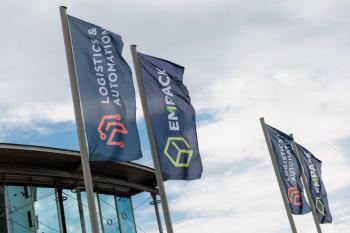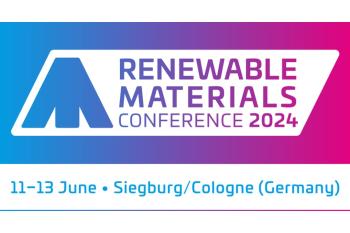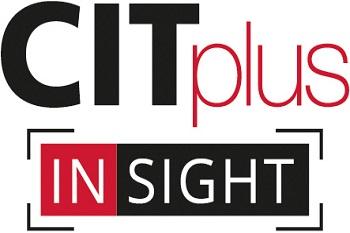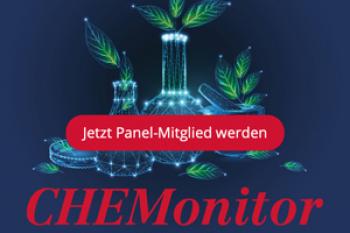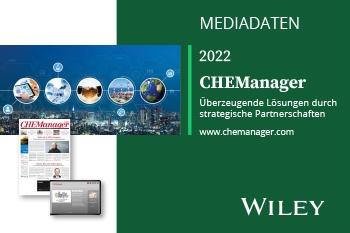Science that Enables Solutions for Clean Air, Improved Health and Sustainable Use of Resources
Johnson Matthey has reorganized its business divisions in the year of its 200th anniversary. Q&A with CEO Robert MacLeod
2017 marks the 200th anniversary of UK specialty chemical and technology group Johnson Matthey which – back in 1817 – began as assayers, testing the purity of precious metals. In April 2017, Johnson Matthey has announced the reorganization and rebranding of its corporate divisions. It has retained four divisions but some businesses have been moved to new segments. The Royston-headquartered group said the initiative was designed to increase its focus and build a more collaborative organization as well as reflect its position as a science-led group. The sectors are now aligned with the global priorities of cleaner air, the efficient use of natural resources and improved health. Dr. Ralf Kempf asked Robert MacLeod, the CEO of Johnson Matthey, the reasons for the reorganization, the benefits digitalization could have for the industry, and the trends that will affect the company’s businesses in the future.
CHEManager: What is the rationale behind Johnson Matthey’s updated brand? How will the new brand and business restructuring impact the positioning of your Pharma offering?
R. MacLeod: Johnson Matthey has been in business for 200 years. Our focus on sustainable technologies and products has becoming increasingly significant over time to address changing market and societal needs. Our technologies are used by manufacturers across many industries, including pharmaceuticals, petrochemicals and automotive, to improve the function, performance and safety of their products at a lower environmental cost. We have always applied our cutting-edge science to solve industry challenges, and we are now focusing our expertise on developing efficient and effective technologies to enable the provision of improved, affordable healthcare, clean air and the most efficient use of natural resources. Our recently refreshed branding reflects our commitment to tackling these new challenges and continuing to use our science to build a cleaner, healthier world for future generations. This unified purpose across our business is embodied in our new strapline: inspiring science, enhancing life.
For the pharmaceutical markets we continue to provide our core offerings of custom pharma solutions, controlled substances, catalysts, and APIs & life cycle management. Through our complex chemistry solutions and differentiating technologies, we enable our customers to optimize their chemical processes and accelerate their innovations, ultimately to create a healthier world. Our products and services include the development and supply of APIs, as well as catalysts and other intermediates used in the development of pharmaceutical products. We also offer the full spectrum of drug development and manufacturing services, from discovery through to commercial manufacture and product life cycle management, broadly addressing the need of innovators and generic pharmaceutical companies.
Which market trends do you see as most important for your businesses?
R. MacLeod: The improved life expectancy of our expanding population is driving demand for more affordable healthcare, and the market for APIs is growing steadily. Pharmaceutical companies are looking for more cost-effective ways of delivering complex high quality products and are increasingly outsourcing their API manufacturing requirements. Our breadth of custom manufacturing services, combined with our expertise in complex chemistry, scale up and working in highly regulated environments, makes us well positioned to deliver a strong pipeline of new products to improve health.
We are seeing changes in the way that small to medium-sized pharmaceutical companies want to engage with their suppliers. These include streamlining their supply chains and reducing service providers. With our broad capabilities we can provide for customers’ needs across a wide section of the value chain, helping to save time and ensure quality, while also building stronger partnerships and trust with our customers. In addition, having a global asset base that balances cost without compromising quality gives optimal robustness across the supply chain, and is very attractive for pharmaceutical companies.
There is also increasing interest from both innovator and generic companies in adopting risk- and benefit-sharing approaches with their suppliers. We have already developed flexible business models, where we are prepared to look at innovative ways to support our partners.
What will be the core technologies and key drivers for positioning the Pharma offering in the market? And what are your strategic plans for it?
R. MacLeod: Our technologies include unique catalysts, solid form sciences, as well as advanced capabilities with drug conjugates and linkers, chromatography, large scale cryogenics and high containment. We are particularly focused on advancing our existing capabilities in particle engineering and highly potent APIs. We apply these technologies and our complex chemistry capabilities to deliver valuable products and services. Our Pharma offerings are differentiated through specialist technologies and expertise, while delivering on speed to market and quality, for both innovator and generic customers.
Pharmaceutical companies are also continually looking for improved efficiencies and more sustainable processes. Our leading range of chiral, chemo- and biocatalytic products helps these customers to develop highly efficient and sustainable catalytic processes. Through minimizing waste and reducing cycle times, our products can contribute to economically viable processing.
Overall, our Pharma offering not only helps companies to bring new treatments to market more quickly, increasing their R&D productivity, but also brings much needed efficiencies to manufacturers, resulting in more affordable healthcare for future generations.
Our strategy is to deliver sustainable growth using our existing market-leading technologies and through developing the next generation of technologies to meet global challenges and opportunities across our markets. We will continue to maintain a robust portfolio of new products and customers, supported by our global manufacturing capabilities. Johnson Matthey has a strong reputation as a premier, technology-led API development and manufacturing business and we aim to continue investing to extend our position within pharma markets.
How much does Johnson Matthey invest in R&D, especially within the Pharma offering?
R. MacLeod: Overall we invested a total of £440 million in capital expenditure and R&D during 2016 to 2017, across all of our business areas. Within Pharma, these investments have included broadening our pipeline of new generic APIs for improved health, and provided significant enhancements to diversify our technology portfolio as we continue to build for the future. We have made considerable investments over recent years. These activities include expansions to our state-of-the-art development center in Cambridge and major investment in our recently refurbished GMP manufacturing facilities in Annan, Scotland. We also acquired Pharmorphix, the leading solid form sciences business, to enhance our capabilities in API pre-formulation and development.
Which are the most important commercial assets that Johnson Matthey has acquired throughout its history? How can the company use these assets as a competitive advantage?
R. MacLeod: Historically Johnson Matthey was focused on niche API offerings such as platinum-based actives and controlled substances. In the latter case these are pharmaceuticals with additional regulatory requirements, which restrict the locations where these products can be made and distributed. Consequently, our assets for controlled substances are in the main markets of the US and Europe and we will continue to support these markets in the future. As we’ve expanded our capabilities to service the pharmaceutical innovator market we’ve added capabilities into innovator hubs, including Devens, MA and Cambridge in the UK. Also, importantly we established capacity in China, which allows us to support early stages of API synthesis from a more advantaged cost base. For our catalyst manufacturing again we have capacity in the Europe and the US, and in India and China where many generic APIs are manufactured using catalysis.
Overall our strategy has been to develop a global asset base that enables us to align with customer needs in terms of proximity to markets, and with sufficient breadth and scale to be able to provide economies of scale to bring credible value-adding products and services to the market.
The company is celebrating its 200th anniversary. What does that mean for the Pharma offering in particular, and how will this heritage benefit your customers in pharmaceuticals and find chemicals going forward?
R. MacLeod: We’re very proud to have reached 200 years, this is a huge achievement for any company and we have contributed significantly to the pharma industry over the past two centuries. For example, we produced the first pharmaceutical that was administered by injection - morphine, and we have been instrumental in developing some of the well-known platinum-based therapies to treat cancer. As we move into our third century, we will continue to build on our pharmaceutical offering through further investing in R&D to expand our generic API portfolio, as well as enhancing our existing technologies and capabilities to help innovator pharmaceutical companies deliver the next generation of therapies.
Do you have any predictions on what trends will affect the pharma industry in the future and how you are positioned to impact these?
R. MacLeod: There is a clear trend for the focus to be on smaller patient populations, currently this is in areas such as orphan indications and eventually through the personalization of medication tailored to more specific genotypes. Additionally, drugs are becoming more complex and better targeted, but consequently more complex and more active, or highly potent. This has implications not only for how API service providers interact with customers, but also the types of assets they have and where they are located. We are conscious of these trends as we look at our technology capabilities and asset base and how and where we will be making future investments.
Another developing need of pharmaceutical customers is the ability to integrate API manufacture with the requirements of drug product development, as the boundaries between primary and secondary manufacture continue to blur. We are prepared for this to become an essential need as APIs become increasingly complex and present challenges for development, due to their poor solubility and low bioavailability. Therefore, we are taking steps to be able to integrate these critical drug product development capabilities into our API manufacturing services.
As more complex actives come to market, pharmaceutical companies will be looking for shorter synthesis cycles and more economic approaches to manufacturing their products. Our technologies will prove vital in being able to address these needs and, with our world-class assets across North America and Europe, we can embed our platform technologies into the manufacture and scale-up of processes.





